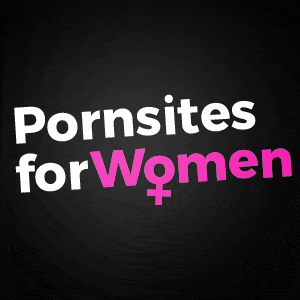by Coleen Singer at Sssh.com Porn For Women
Earlier this week, there was a minor kerfuffle on the web when it was revealed a certain popular porn “tube” site was had been hacked in furtherance of infecting the site’s users with malware.
While the exploit was addressed fairly quickly by the site’s administrators, I have a more than slight bone to pick with the way this story (and others like it) has been approached by a lot of media outlets.

One tech site, for example, described the site in question as being “like the Huffington Post of porno sites: Sprawling, popular, and full of content aggregated from elsewhere on the internet.”
Read on…
While it’s certainly true adult tube sites are “full of content aggregated from elsewhere on the internet,” what this observation omits is a crucial difference between HuffPo and adult tube sites: Generally speaking, writers and other content creators are happy to see their work reposted on or linked to from HuffPo, whereas porn producers often aren’t too thrilled to see their content show up on a tube site.
To be fair, over the last several years many porn producers have started to upload or otherwise provide their content to tube sites of their own volition. This has been a traffic-driven decision; tube sites are getting all the eyeballs these days (that tends to happen on the web when you give away for free the same products your competition is trying to sell), so a lot of porn producers have decided to stop resisting their existence and start using the tubes to squeeze out whatever traffic and brand exposure they can.
Make no mistake, though: There’s still no shortage of content uploaded to the tubes without the permission of the creators and copyright-holders. Looking at data from Google’s transparency report, you will still find plenty of DMCA take down requests filed by porn producers targeting even the most popular tube sites.
Sure, the Huffington Post spawns the occasional DMCA notice too, but let’s look at these numbers from Google for a moment. Between November 2011 and this month, the report shows 43 URLs associated with HuffPo connected to take down requests received by Google. For the tube site in question, Google received requests to remove 16,172 URLs since February, 2012.
The other important difference between an adult tube site and HuffPo, of course, is isn’t a repository of sexually-explicit content uploaded by anonymous individuals, sometimes featuring anonymous individuals.
I’ll let you connect the problematic dots between the two above facts on your own, other than to note certain crimes fall under the category of what’s called “strict liability,” which in this context is a roundabout way of saying that depending on the jurisdiction involved, the court often won’t give a particular shit whether you actually knew illegal porn videos of a certain variety were illegal at the time you watched them.
Ironically, the operators of tube sites are (arguably, at least) largely protected from the worst consequences of the illegal content uploaded to their sites, by virtue of the protections of legal ‘safe harbors’ like §512 of the Digital Millennium Copyright Act and §230 of the Communications Decency Act.
While I think it’s unlikely any individual user would be prosecuted in connection with anything they might watch on a porn tube site, my point is the some of the same things which make such sites so popular – the amount and variety of content, frequency of updates and the virtual free-for-all in terms of the sources of the content – introduce serious potential for trouble, even if only of the personal and ethical variety.
In a statement about the recent iframe exploit incident, the site released a statement observing that the “continuing proliferation of malware attacks have made them a concern for any organization.”
They’ll get no argument from me on this point, because the fact they operate a porn site is incidental to all of this. This tube site was an attractive target due to its popularity, plain and simple. If some foodie blog out there pulled in 300 million visitors a month, hackers would be all over the thing in a heartbeat.
Other parts of the statement are a little harder for me to take seriously, however, especially the bit stating “there is no longer any risk to visiting” the site.
What the company means by this, of course, is that it “pursues stringent privacy requirements” and “maintains the highest industry standards of privacy protection to secure not only their assets and properties, but to provide comprehensive protection of their customers’ data” while visitors are on their site.
Those are laudable efforts on the part of the tube site in question, I suppose, but in context, the idea those efforts equate to a total elimination of risk to visiting the site is a stretch worthy of Reed Richards.
On the bright side, the company also says it is “committed to providing their customers with an optimal online experience” and “peace of mind” when accessing the site.
So by not proactively monitoring the content uploaded to their sites and not concerning themselves with whether the content complies with statutes like 18 USC 2257, a site which arguably can only exist in its current form due to (possibly) fitting within safe harbor provisions of federal law is going to provide me with “peace of mind”?
Gee…. I feel safer already, don’t you?









 Erotic Cinema For Discerning Adults
Erotic Cinema For Discerning Adults Anonymous Adult Search
Anonymous Adult Search